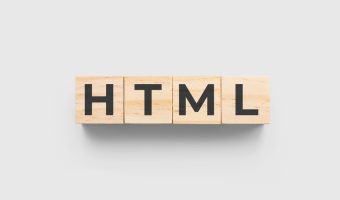Popular Instructors
All IT & Software Courses
Core Java Programming (JSE API)
Master the fundamentals of Java programming with this comprehensive Core Java …
What you'll learn
Master Java fundamentals, including data types, operators, and control statements.
Understand object-oriented programming (OOP) concepts like classes, objects, and methods.
Explore advanced topics such as inheritance, polymorphism, and interfaces.
Learn about exception handling, packages, and wrapper classes.
Gain proficiency in using the Java Collection Framework for data manipulation.
Understand streams, files, networking, threads, graphics, and applets in Java.
Discover enumerations, annotations, and miscellaneous Java concepts.
C++ Programming
C++ is a powerful and versatile programming language widely used for …
What you'll learn
Understanding the basic syntax, data types, and control structures of the C++ programming language.
Learning object-oriented programming concepts such as classes, objects, inheritance, polymorphism, and encapsulation.
Mastering the use of pointers and memory management in C++ programming.
Exploring standard template library (STL) for data structures and algorithms implementation.
Gaining proficiency in file handling, exception handling, and multi-threading concepts.
Developing skills in C++ application development, including console applications, graphical user interfaces (GUIs), and game development.
What you'll learn
Understanding the basic syntax, data types, and control structures of the C programming language.
Learning to write and execute C programs using a text editor and a compiler.
Mastering concepts such as functions, arrays, pointers, and memory management in C.
Exploring file handling and input/output operations in C programming.
Gaining proficiency in using C libraries and standard functions for common tasks.
Developing skills in modular programming and code organization in C.
What you'll learn
Understand the fundamentals of accounting principles.
Gain proficiency in navigating Tally's interface and features.
Learn to create and manage company accounts.
Master inventory management and stock control using Tally.
Explore advanced functionalities like GST compliance, payroll management, and financial reporting.
Develop practical skills through hands-on exercises and real-world scenarios.
Prepare for Tally certification exams to validate your expertise.
Advance Microsoft Excel
The Advance Microsoft Excel Course empowers participants to harness the full potential …
What you'll learn
Apply visual elements and advanced formulas to display data in various formats.
Automate common tasks and apply advanced analysis techniques to complex data sets.
Collaborate on worksheets with others and leverage Excel's advanced functionality to simplify day-to-day work.
Create macros, audit and analyze worksheet data, and incorporate multiple data sources.
Apply advanced analysis techniques to extract insights from complex data sets.
Prepare for the Microsoft Certified Application Specialist exam in Microsoft Office Excel.
ASP.NET
This course provides a comprehensive introduction to ASP.NET, equipping you with the …
What you'll learn
Understand ASP.Net fundamentals, including web browsers, servers, HTML, and the .NET Framework.
Master ASP.Net standard controls for creating interactive web applications.
Learn ASP.Net validation controls for data validation and user input.
Explore advanced topics such as master pages, ASP.Net lifecycle, and state management techniques.
Gain proficiency in ADO.NET for data access and manipulation.
Understand ASP.Net security features and configuration.
Learn the basics of AJAX for asynchronous web development.
What you'll learn
Understanding the basic syntax and structure of HTML elements, tags, and attributes.
Learning to create headings, paragraphs, lists, and other text-based content using HTML.
Incorporating images, hyperlinks, and multimedia elements into web pages.
Understanding HTML forms and input elements for user interaction and data submission.
Implementing semantic HTML to improve accessibility and search engine optimization (SEO).
Gaining proficiency in organizing and styling content using HTML5 semantic elements and CSS (Cascading Style Sheets).
Front End Web Development
Front End Web Development course equips you with the foundational skills …
What you'll learn
Gain a solid understanding of HTML, the core markup language used to structure web pages.
Learn how to control website layout, typography, and visual aesthetics with CSS.
Leverage JavaScript to add interactivity and dynamic elements to your web creations.
Design websites that adapt seamlessly to different screen sizes and devices for optimal user experience.
Explore popular front-end frameworks like Bootstrap to streamline your development workflow.
Learn industry-standard coding practices to ensure your websites are clean, maintainable, and efficient.















